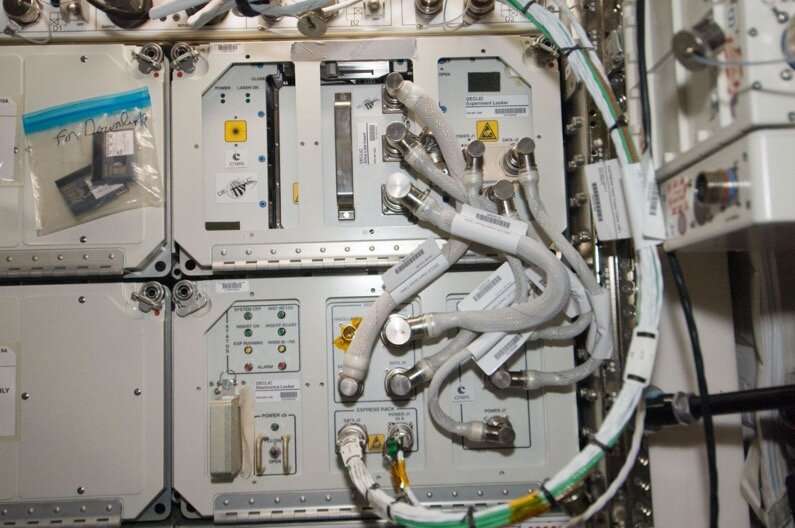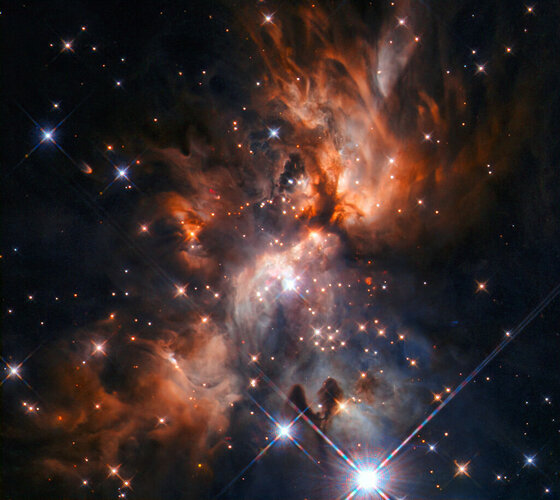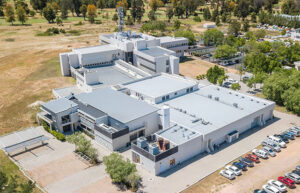Astra aborts small-rocket launch for Space Force from Alaska
Saturday, 28 August 2021 07:36 California-based Astra Space, a relatively new rocket company, aborted the launch of its first payload, an experiment for the U.S. Space Force, from Alaska on Friday.
The company did not explain immediately the reason for the abort at 5:45 p.m. EDT on a livestream provided by space media publication NASAspaceflight.com.
The launch window stretches to Sept. 11 at the Pacific Space
California-based Astra Space, a relatively new rocket company, aborted the launch of its first payload, an experiment for the U.S. Space Force, from Alaska on Friday.
The company did not explain immediately the reason for the abort at 5:45 p.m. EDT on a livestream provided by space media publication NASAspaceflight.com.
The launch window stretches to Sept. 11 at the Pacific Space Mystery investor orders life support system for private space station
Saturday, 28 August 2021 07:36 The billionaire space race formally kicked off last month after companies owned by Virgin Group CEO Richard Branson and Amazon chairman Jeff Bezos sent the men soaring to the edge of space. Critics have viciously attacked the billionaires for bringing a dystopian sci-fi vision of the future one step closer to reality.
Raytheon Technologies subsidiary Collins Aerospace has confirmed that it
The billionaire space race formally kicked off last month after companies owned by Virgin Group CEO Richard Branson and Amazon chairman Jeff Bezos sent the men soaring to the edge of space. Critics have viciously attacked the billionaires for bringing a dystopian sci-fi vision of the future one step closer to reality.
Raytheon Technologies subsidiary Collins Aerospace has confirmed that it Robotic arm to help astronauts will head to space station
Saturday, 28 August 2021 07:36 Part of a robot that could help perform routine tasks for astronauts is among the cargo on SpaceX's planned launch Saturday to the International Space Station from Florida.
Tokyo-based GITAI Japan is developing the S1 robotic arm to work in space much like industrial robots work on Earth.
Liftoff of the Falcon 9 rocket carrying the arm, supplies and science experiments is planned for
Part of a robot that could help perform routine tasks for astronauts is among the cargo on SpaceX's planned launch Saturday to the International Space Station from Florida.
Tokyo-based GITAI Japan is developing the S1 robotic arm to work in space much like industrial robots work on Earth.
Liftoff of the Falcon 9 rocket carrying the arm, supplies and science experiments is planned for Space pens, pencils, and how NASA takes notes in space
Saturday, 28 August 2021 07:36 The Space Pen has captured the American imagination in more ways than one. It's appeared repeatedly in pop culture and even worked as a plot device in a "Seinfeld" episode titled "The Pen," and in 2021 was inducted into the Space Technology Hall of Fame. It's also the subject of a myth that the space agency spent millions to invent a pen that can write in zero gravity, while cosmonauts simply us
The Space Pen has captured the American imagination in more ways than one. It's appeared repeatedly in pop culture and even worked as a plot device in a "Seinfeld" episode titled "The Pen," and in 2021 was inducted into the Space Technology Hall of Fame. It's also the subject of a myth that the space agency spent millions to invent a pen that can write in zero gravity, while cosmonauts simply us Collins Aerospace to provide an Earth-like atmosphere for future travelers heading into orbit
Saturday, 28 August 2021 07:36 Collins Aerospace has been awarded a $2.6 million contract by an undisclosed customer for Environmental Control and Life Support Systems (ECLSS) that will support a mission to establish a privately owned and operated orbital outpost in low Earth orbit.
The ECLSS is a suite of technologies that enable livable conditions as low as 250 kilometers above Earth's surface. The ECLSS includes air
Collins Aerospace has been awarded a $2.6 million contract by an undisclosed customer for Environmental Control and Life Support Systems (ECLSS) that will support a mission to establish a privately owned and operated orbital outpost in low Earth orbit.
The ECLSS is a suite of technologies that enable livable conditions as low as 250 kilometers above Earth's surface. The ECLSS includes air How disorderly young galaxies grow up and mature
Saturday, 28 August 2021 07:36 Using a supercomputer simulation, a research team at Lund University in Sweden has succeeded in following the development of a galaxy over a span of 13.8 billion years. The study shows how, due to interstellar frontal collisions, young and chaotic galaxies over time mature into spiral galaxies such as the Milky Way.
Soon after the Big Bang 13.8 billion years ago, the Universe was an unruly
Using a supercomputer simulation, a research team at Lund University in Sweden has succeeded in following the development of a galaxy over a span of 13.8 billion years. The study shows how, due to interstellar frontal collisions, young and chaotic galaxies over time mature into spiral galaxies such as the Milky Way.
Soon after the Big Bang 13.8 billion years ago, the Universe was an unruly Unravelling the mystery of brown dwarfs
Saturday, 28 August 2021 07:36 Brown dwarfs are astronomical objects with masses between those of planets and stars. The question of where exactly the limits of their mass lie remains a matter of debate, especially since their constitution is very similar to that of low-mass stars. So how do we know whether we are dealing with a brown dwarf or a very low mass star?
An international team, led by scientists from the Unive
Brown dwarfs are astronomical objects with masses between those of planets and stars. The question of where exactly the limits of their mass lie remains a matter of debate, especially since their constitution is very similar to that of low-mass stars. So how do we know whether we are dealing with a brown dwarf or a very low mass star?
An international team, led by scientists from the Unive Two experiments to help humans "go farther / stay longer" in space
Friday, 27 August 2021 12:28
When the Space X23 rocket launches on August 28th to resupply the International Space Station, it will carry two experiments designed to sustain humans as they go farther and stay longer in deep space: A physical science investigation known as DEvice for the study of Critical Liquids and Crystallization—Directional Solidification Insert-Reflight (DSI-R), and a space biology experiment known as the Advanced Plant EXperiment-08 (APEX-08).
While DSI-R's full title may be long, its purpose is succinct: How can material scientists make metal alloys stronger, and last longer under various gravity conditions? The answer may lie in a series of computational models that researchers hope to refine as a result of this experiment. Dr. Rohit Trivedi, a senior scientist at Ames Laboratory and a professor of materials science and engineering at Iowa State University in Ames Iowa is the principal investigator: Dr. Alain Karma, a professor of physics at Boston's Northeastern University is the Co Investigator.
Week in images: 23 - 27 August 2021
Friday, 27 August 2021 12:06
Week in images: 23 - 27 August 2021
Discover our week through the lens
Dragonfly Aerospace’s journey from camera specialist to microsatellite builder
Friday, 27 August 2021 11:05
Currently more known for the high-resolution cameras it builds than for spacecraft, Dragonfly Aerospace’s plan to move into microsatellite manufacturing got a major boost in April when it was sold to serial entrepreneur Max Polyakov.
China researching challenges of kilometer-scale ultra-large spacecraft
Friday, 27 August 2021 09:13
The National Natural Science Foundation of China has outlined a five-year project for researchers to study the assembly of ultra-large spacecraft.
KyotoU to test slats of wood aboard Japan's Kibo platform on the ISS
Friday, 27 August 2021 07:56 Humans have relied on forests and trees - for shelter, food, and fuel - from the earliest times. As technology has advanced, timber has been utilized for buildings, ships, and railroads. And now we may be on the verge of taking wood into space.
Why wood? Building in space with futuristic, 'space-age' materials might seem to be the obvious choice: lumber's fragility and combustibility might
Humans have relied on forests and trees - for shelter, food, and fuel - from the earliest times. As technology has advanced, timber has been utilized for buildings, ships, and railroads. And now we may be on the verge of taking wood into space.
Why wood? Building in space with futuristic, 'space-age' materials might seem to be the obvious choice: lumber's fragility and combustibility might University of Zurich and Airbus grow miniature human tissue on the International Space Station ISS
Friday, 27 August 2021 07:56 With the next supply flight to the International Space Station (ISS), the Space Hub of the University of Zurich (UZH) and Airbus Defence and Space are bringing an experiment into space, which is intended to further advance the industrial production of human tissue in zero-gravity conditions. With this step, space could become a workshop for producing miniature human tissue for terrestrial use in
With the next supply flight to the International Space Station (ISS), the Space Hub of the University of Zurich (UZH) and Airbus Defence and Space are bringing an experiment into space, which is intended to further advance the industrial production of human tissue in zero-gravity conditions. With this step, space could become a workshop for producing miniature human tissue for terrestrial use in Implantable drug delivery devices goes remote onboard the ISS
Friday, 27 August 2021 07:56 From Novartis to Lamborghini, Alessandro Grattoni and the Houston Methodist Research Institute have partnered with big names to leverage the International Space Station (ISS) U.S. National Laboratory for space-based research and technology development with important benefits back on Earth.
Grattoni, professor and chair of the Department of Nanomedicine at the Houston Methodist Research Ins
From Novartis to Lamborghini, Alessandro Grattoni and the Houston Methodist Research Institute have partnered with big names to leverage the International Space Station (ISS) U.S. National Laboratory for space-based research and technology development with important benefits back on Earth.
Grattoni, professor and chair of the Department of Nanomedicine at the Houston Methodist Research Ins Blue Origin launches experiments, artwork from Texas
Friday, 27 August 2021 07:56 Jeff Bezos' rocket company, Blue Origin, launched the 17th mission of its New Shepard rocket Thursday morning from Texas with artwork and experiments for NASA and universities.
The NS-17 mission lifted off at 10:31 a.m. EDT from the company's launch facility about 150 miles east of El Paso after nearly an hour delay due to an issue with one of the experiments on board, according to a Bl
Jeff Bezos' rocket company, Blue Origin, launched the 17th mission of its New Shepard rocket Thursday morning from Texas with artwork and experiments for NASA and universities.
The NS-17 mission lifted off at 10:31 a.m. EDT from the company's launch facility about 150 miles east of El Paso after nearly an hour delay due to an issue with one of the experiments on board, according to a Bl 